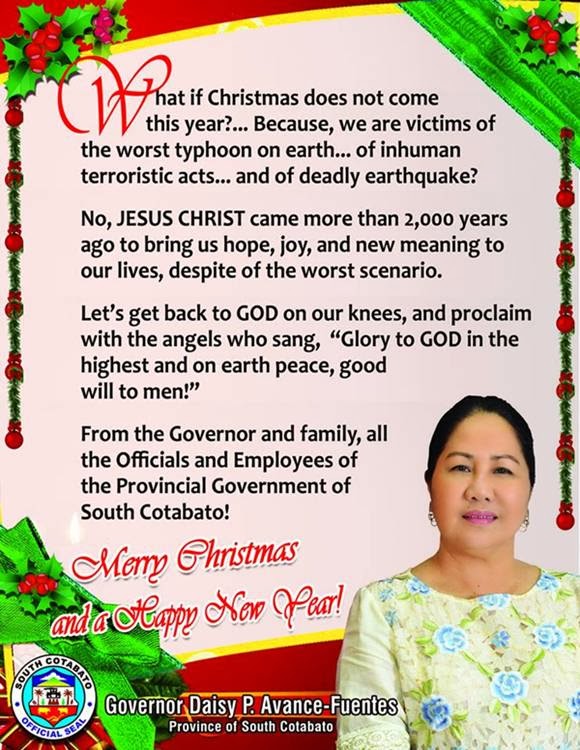Maguindanao Costume Description
Batik design is also common with this costumes. Kinship solidarity is very strong among the Tausug and married children often live nearor in the same household withthe parents of the husband.

Maguindanao Festival Philippines Culture Cultural Diversity Cultural Landscape
Tboli Costume Description Tboli wiseman in Tnalak costume.

Maguindanao costume description. It features long skirts for the women frequently woven with metallic threads and shorter wrap-around skirts for the men. They are made by. They believe in spirits and gods.
The gongs are arranged in graduated fashion in pairs with knobs of the lower-pitched gongs facing each other and the higher-pitched gongs doing the same. In the southern part of the Philippines. Higit na malaki ang pulo ng Mindanao kaysa sa 125 mga bansa sa daigdig kabilang ang Netherlands Austria Portugal Czech Republic Hungary at Ireland.
Whil most Tboli women now wear Western dress in daily basis the Maguindanao tube skirts and those made of commercial prints are still seen as well. They are ethnically and culturally closely related to the Iranun and Maguindanao all three groups being denoted as. Land is traditionally owned by the clan and controlled by local leaders known as datu s.
Ikalawang pinakamalaking pulo sa Pilipinas ang Mindanao na may sukat na 104630 kilometro kwadrado at ikawalang pinakamataong pulo sa buong daigdig. The Maranao people also spelled Meranao Maranaw and Mëranaw is the term used by the Philippine government to refer to the southern indigenous people who are the people of the lake a predominantly-Muslim Lanao province region of the Philippine island of Mindanao. Land of the Dream Weavers.
The Tnalak is the traditional woven textile of the Tboli people. Photo by IPDP 2008. This is a colorized vintage portrait of a woman from the Itneg tribe found in the northern Philippines particularly in the Abra province.
ARTS AND CRAFTS OF MINDANAO Grade 7 3rd Quarter 2. Ikat is a time consuming and tedious technique only used by most patient artisans. Along with the Maguindanao people the people of the lake as the Maranao are called produce malong large tubular garments both worn by men and women for a number of purposes.
Tboli blouse with 8-layered beads necklacewith Tboli belt and Maguindanao malongskirt Tboli Blouse with Maguindanao Malong tboli polo for men accented by maguindanao handwoven scarf worn as belt a little above the hips. The malong is a large wrap-around tubular garment measuring at least 165 x 165 cm. The women also frequently have overskirts and scarves draped from the shoulder.
A language profile for Maguindanaon. The instrument is usually described as four large shallow-bossed thin-rimmed gongs vertically hung either from a strong support such as a tree limb or housed in a strong wooden framed stand. Also in Kudat and Likas Kota Kinabalu.
Mystical symmetrical patterns inspired by their dreams are created from memory and transferred onto fabric using the Ikat method. Up to this day they prefer to live in the mountainsides of Mindanao living the traditional life. Kegal Bensewit decorated with shell discs is the most expensive Tboli blouse.
The Iranun are a Moro ethnic group native to Mindanao Philippines and the west coast of Sabah Malaysia in which they are found in 25 villages around the Kota Belud and Lahad Datu districts. The word Maguindanao means to be inundated and is derived from the fact that the Pulangi River used to overflow its banks periodically flooding the whole vast countryside and giving the impression that the whole region was one big lake or danao. Their beliefs can be seen through the ornaments of every woman and the woven dresses they wear.
Islamic beliefs and practices which are gradually becoming more orthodox are superimposed on a preexisting animistic belief system. Get a detailed look at the language from population to dialects and usage. They are used by the Maranao and Maguindanao from southern Philippines.
ELEMENTS OF ART 3. The predominant religion among the Maguindanao is a form of folk Islam. They are known for their artwork weaving wood plastic and metal crafts and epic literature the Darangen.
With a name meaning people of the flood plain the Maguindanao are most heavily concentrated along the shores and in the flood lands of the Pulangi- Mindanao River basin although many now live in the surrounding areas. Theres a god for land another for water another for harvest to name a few. The customs of marriage and the family follow Muslim tradition.
Apart form the Malay race features no blues or green eyes several coloring options on the clothes and ornaments can be made and this is one I did. State Province borders. Maguindanao - Religion and Expressive Culture Religious Beliefs.
Maguindanao meaning people of the flood plains occupy the basin of the Pulangi River in Mindanao. People continue to. Maguindanao also spelled Magindanao or Magindanaw also called Maguindanaon ethnolinguistic group living primarily in south-central Mindanao the largest island in the southern Philippines.
Arts and crafts of mindanao 1.

Festivals Of Mindanao Page 62 Skyscrapercity Filipino Clothing Tribal Outfit Philippines Fashion

Maranao Filipino Culture Filipino Tattoos Philippines Outfit

Maguindanao Male Malong Google Search Tribal Costume Philippines Culture Spanish Costume

Maguindanao Dance Performer Of The Salamindanao Dance Troupe From Cotabato Note Headdress Jewelry And Philippines Culture Filipino Culture Filipino Fashion

Maguindanao Philippines Culture Filipino Culture History

Komentar
Posting Komentar